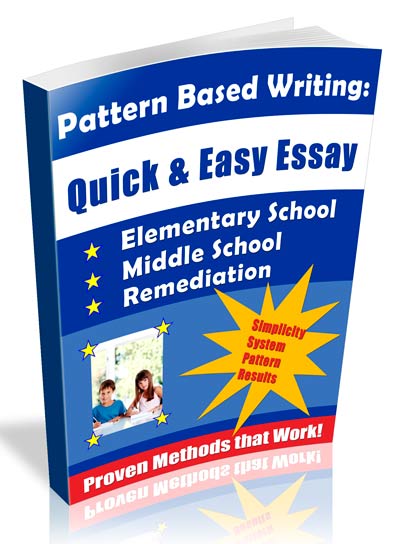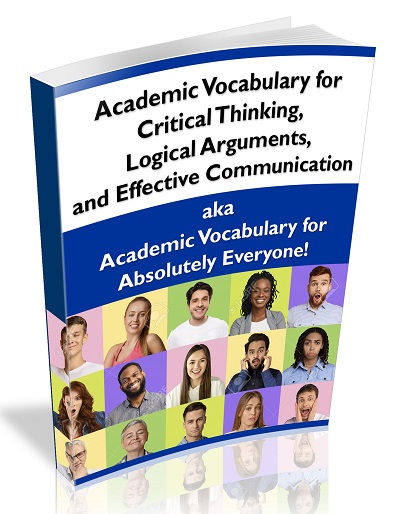Understanding essay writing is critical for teachers, students, readers, and writers. Aldous Huxley (1894-1963), a famous essayist, defined an essay this way: “The essay is a literary device for saying almost everything about almost anything.” That’s a great definition, but it’s also a problem. It’s a problem because it’s true.
How Much Essay is in the Piece of Writing?
Many articles, stories, and arguments are essays. This is why it is so critical to understand essay writing. The benefits of understanding essay writing are three-fold:
- Accurate and insightful literary analysis.
- Clear writing assignments and expectations.
- Targeted and effective writing.
This page focuses on essay writing as it relates to school writing. To understand professional adult essay writing, be sure to check out these two pages:
What’s an Essay? Famous Essayists Explain!
A Brief History of the Essay: The Essay Defined
By the way, if you teach paragraph or multi-paragraph writing, you owe it to yourself to check out Pattern Based Writing: Quick & Easy Essay. You will get twice the results in half the time. Also, be sure to check out Academic Vocabulary for Critical Thinking, Logical Arguments, and Effective Communication. By reading it just once, you will change the way you think and communicate forever. I guarantee it!
An Essay Defined
1. Noun: Essay: A short whole composition on any particular subject; — usually shorter and less methodical than a formal, finished treatise. (Webster’s Dictionary – 1913)
2. A Personal Point of View: An essay is a short piece of nonfiction writing from a personal point of view. The importance of being able to identify an essay is equivalent to understanding the difference between fact, fiction, truth, opinion, interpretation, subjectivity, and objectivity. One of the most important questions in literary analysis or simply understanding a piece of writing is this: Is this piece of nonfiction writing written from a personal point of view?
Examples: Essay Used in a Sentence
It helps to see how words are used in a sentence. This is especially true with the word “essay.” These example sentences shed a nice light on essays and essay writing.
1. Ex. Bestselling author Malcolm Gladwell writes narrative nonfiction. However, his books are essentially collections of related essays (noun). You can tell they are essays (noun) because they meander.
2. Ex. The students are required to write a literary analysis essay (noun) on their district writing assessment. In contrast to Malcolm Gladwell’s writing, students are encouraged not to meander.
3. Ex. A treatise or dissertation is a more formal or substantial counterpart to the essay (noun).
4. Ex. If you wish to understand the power of the essay (noun), you must read James Baldwin’s Notes of a Native Son (1955).
5. Ex. A personal narrative story strategically uses story elements to tell what happened for the purpose of entertainment. A personal narrative essay (noun) also uses story elements, but it is wrapped in personal reflection to help others understand and explore the personal truth of the matter.
The First Essay: Single-Handedly Inventing a Genre
In 1580, Michel de Montaigne wrote a book titled Essais. This book single-handedly invented a new genre of writing—called essays. In French, essais means attempts. In short, Montaigne’s essays were attempts to say something worthwhile from his own point of view.
What did Montaigne write about in these essays? Here are a few titles:
Thumbs, Profit and Honesty, Against Idleness, That We Taste Nothing Pure, Glory, Tomorrow’s A New Day, Smells, Ancient Customs, The Uncertainty of Our Judgment, Solitude, Friendship, The Education of Children, Quick and Slow Speech, and Cowardice: The Mother of Cruelty.
This is where it all started. But what is an essay? Strangely, four hundred years later, people are still trying to define what an essay is.
So, what is an essay? We frequently use the term essay as a generic term. Aldous Huxley, a famous essayist, said, “The essay is a literary device for saying almost everything about almost anything.” While that is true, it’s also a bit more complicated. As a rule, an essay communicates a personal understanding, interpretation, or perspective. In reality, an essay is a genre.
Essay: An Essay Is a Genre
An essay is a genre. A genre is composed of qualities and characteristics. A piece of writing must contain some qualities and characteristics of a genre to be in the genre. So, the real question is this: What are some of the qualities and characteristics of an essay?
Qualities and Characteristics of an Essay: 1) a short piece of writing, 2) a personal interpretation or understanding, 3) reflective, 4) meandering, 5) a search for truth vs. simply stating the facts.
Some of those qualities and characteristics apply more directly to informal essays than formal essays. However, if you go to the New Yorker Magazine website and read some of their articles, many will be essays. You will find that many of them are relatively short, reflective, meandering, personal interpretations, and they contain a search for truth. Having said that, many people prefer to read writing that is clear, direct, and to the point. As a rule, that’s what we try to teach students.
Essay: Comparison with Other Types of Writing
To understand what an essay is and the genre, most people will need to understand it in comparison to other genres of writing. Furthermore, they will need to understand the different types of essays. Take a look:
» 1) essay vs. research paper, 2) essay vs. report, 3) essay vs. story, 4) essay vs. article, 5) essay vs. report.
» 1) argument essay, 2) literary-analysis argument essay, 3) personal narrative essay, 4) expository essay, 5) informal essay or personal essay, 6) formal essay, 7) opinion essay or editorial essay.
Essay: Why is an Argument an Essay?
We can’t cover all the types and kinds of essays. However, if you understand why most arguments are in essay form, you may understand what an essay is. By definition, arguments are debatable, which means that the writer is presenting a personal interpretation and understanding of the topic. Regardless of how much evidence a writer offers and how formal the writing is, it’s still from the writer’s point of view. It’s not just reporting facts. Most editorial and opinion essays are arguments.
Essays: Types of Essays
The main question regarding any genre is this: How would you classify this piece of writing? Once upon a time, I believed that these lists of genres that people create existed in the real world. No. They are just lists. There is no concrete list of genres.
I finally took a lesson from Netflix, Rotten Tomatoes, and Wikipedia. I began to see genres as lists of adjectives before a noun. Having said that, we certainly want to be able to identify the primary or main genre. What genre is it primarily? To be clear, there is no single correct answer to that question. I may call a piece of writing an essay in one sentence, an argument in the next sentence, and an argument essay in another. Take a look at these three types of essays:
- reflective personal narrative essay
- evaluation compare-and-contrast argument essay
- literary analysis argument essay
Genre is one of the most neglected, misunderstood, and oversimplified topics. Identifying the primary genre of a piece of writing is an excellent skill. If you can correctly place 1-3 adjectives in front of the primary genre, that’s superb! That’s high-level literary analysis.
Essays: Five Genres of Essays
When you understand these five genres of essays, you will appreciate essays as a whole. Once again, try not to think of these as definitive, concrete categories. The critical question is this: How would you describe the piece of writing?
1. Narrative Essay / Personal Essay / Personal Narrative Essay
Most narrative essays are personal narrative essays, especially for student writers. Narrative essays probably contain more reflection than excellent stories and an explicitly stated point. Also, narrative essays often don’t use manufactured story elements and story structure as much. Although they share a lot in common, stories read like stories, and narrative essays read like narrative essays. Should your college admissions paper be a story or an essay? Think about it: What are they looking for? They want to know that you are reflective, learn from your own experiences, and possibly overcome challenges. Does that sound like an essay or a story? That’s an essay. On the other hand, everyone loves a truly great story.
2. Argument Essay
Most arguments are in essay form, whether written or spoken. Arguments are constructed around a thesis statement, which is a debatable claim. I’m sure many arguments are not essays, but you tend to find them only in highly formal, academic, or scientific settings.
Consider these significant types of argument essays: presidential inauguration speech (at least parts), Supreme Court Justice’s written opinion, lawyer’s closing argument, and op-ed pieces in newspapers. As a rule, you will find that these arguments express a personal understanding with a reflective slant. In short, we don’t leave personal understanding and reflective slants out of arguments because that’s the part that persuades people. Furthermore, arguments, by definition, are debatable. An arguer must explain why their side of the argument is the right side of the argument. That’s personal, and you can feel it.
3. Literary Analysis Essays and Reviews
This is an argument essay. I place it in a separate category because it’s an essential academic genre. In a literary analysis essay, you are analyzing a text and proving your interpretation or understanding of the piece of writing. Although many movie reviews etc., read like articles, I would still classify most of them as essays. They express personal interpretations, opinions, and reasoning.
4. Expository Essay
These are somewhat uncommon, as most people would prefer to read an expository article or report than an expository essay. Readers don’t usually want to read meandering text or reflection in expository writing. They want the information—the facts. However, many of Malcolm Gladwell’s (The Tipping Point, etc.) essays are expository essays, and his books are essentially collections of expository essays. The New Yorker publishes many expository essays, including many of Malcolm Gladwell’s.
5. Reflective Essay
Reflection is one of the key characteristics that make an essay an essay. However, that does not mean that an essay must contain reflection. Michel de Montaigne, the creator of the essay genre, used reflection as a primary tool. He reflected on and wrote about things like “thumbs” and “smells.” These essays are probably best classified as reflective essays. Additionally, we could classify many types of journal writing as reflective essays. Of course, a great deal of journal writing is both personal and narrative, and most narrative essays include reflection. For many types of reflective writing, one of the other genres will hopefully emerge as the primary genre. In short, most people would prefer to read someone’s reflective argument essay than their reflective essay.




